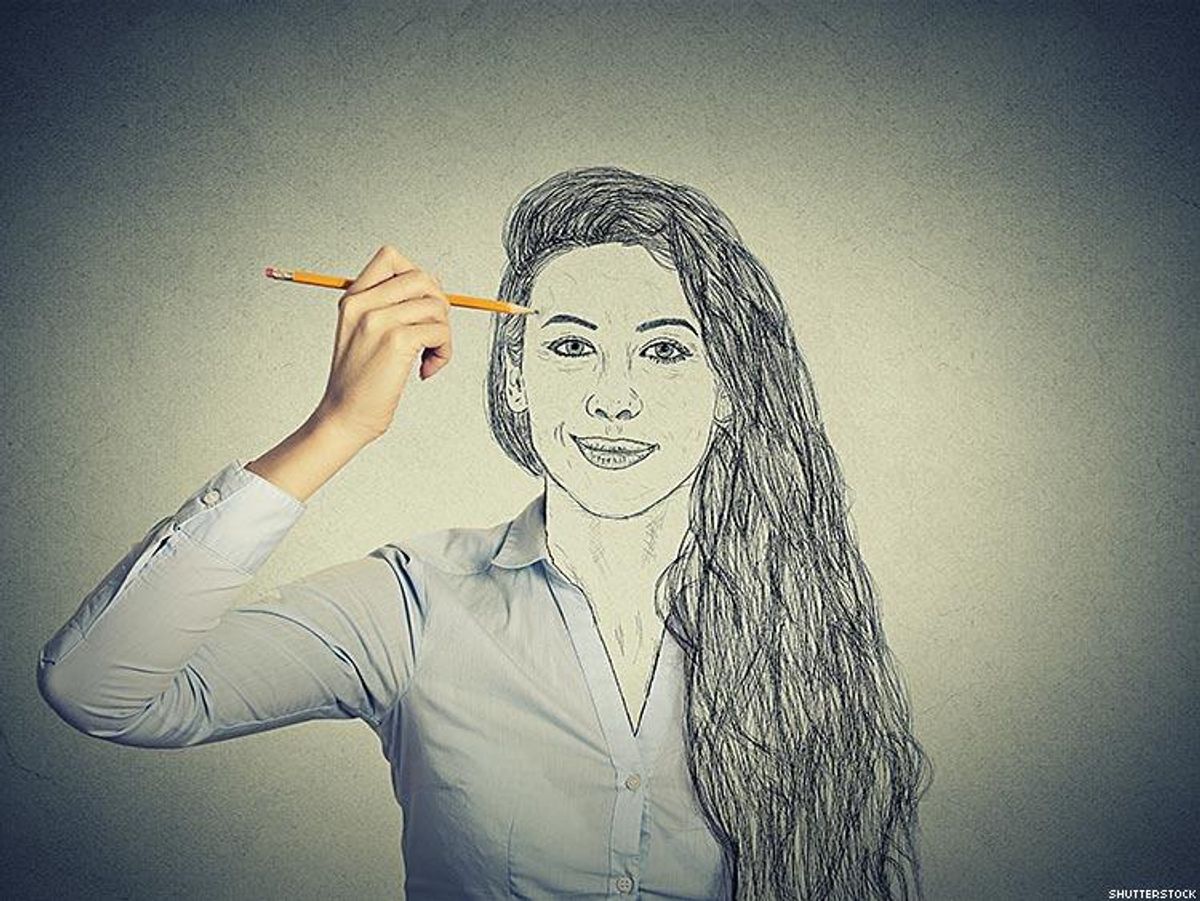I came out as bisexual for the first time to two friends when I was about 16, and then more publicly my freshman year of college. Since then, I've lost count of the number of times I've come out, too often in response to questions like, "So does this mean you're gay now?" when I began dating a woman, or "So you're not gay anymore?" when I was dating a man.
Bisexuality doesn't work that way.
After years of knowing few other self-identified bisexuals, I have finally connected with the Bi+ community in the past year, and learned that my experiences are strikingly common -- nearly all of us have faced biphobia from parents, partners, friends and acquaintances, as well as those within the LGBT community. And many of us find our identities routinely erased or rendered invisible, leaving us with the choice to remain unseen or come out over and over again.
To be clear, there are many legitimate reasons for not identifying openly with the term "bisexual." I understand the desire to eschew labels, to resist the expectation that our sexualities have to fit into neat categories. There are also those for whom exposing themselves to biphobia is neither safe nor healthy; and given the tendency of others to make assumptions about our identities, it shouldn't be incumbent on us to constantly correct people.
But avoiding being visibly bisexual also poses a problem to the rest of our community: it allows biphobia to persist and keeps us silent. Being openly bisexual is in many ways still a radical act, even in the LGBT community.
But it shouldn't be, and here's why:
Bisexuality is real and should not be a source of shame. According to the Williams Institute, an LGBT think-tank based at the University of California, Los Angeles School of Law, about half of the LGB community describes their sexual orientation as bisexual -- half of us.
Surprised? I was, too. So the question those of us who are attracted to more than one gender need to ask ourselves comes down to: why don't we want to call ourselves bisexual? Is it because we don't want to deal with biphobia -- because we don't want people to make assumptions about our sex lives, or say that our sexuality isn't real, or is just a phase? Do we have our own internalized biphobia that we'd rather not deal with?
Biphobia is literally killing us. From suicide to major health disparities, we're unhealthier than our non-LGBT and our lesbian and gay peers, and we also have the lowest levels of social support.
Bisexual youth need role models. The Human Rights Campaign Foundation's 2012 survey of LGBT youth showed that bisexual youth were less likely than lesbian and gay or non-LGBT youth to say they were happy; they also had less support from caring adults, and reported and high levels of exclusion and bullying by peers. These youth need to know that there are real adult bisexuals who disprove biphobic stereotypes.
Bisexuality is a big, gender-inclusive umbrella. I often hear people say they'd rather avoid labels because they want to acknowledge their attraction to non-binary people. But bisexual community activists have long embraced non-binary people, and included those who identify as pansexual, queer and fluid. Like many of my fellow bi activists, I prefer legendary activist Robyn Ochs's definition:
"I call myself bisexual because I acknowledge that I have in myself the potential to be attracted -- romantically and/or sexually -- to people of more than one sex and/or gender, not necessarily at the same time, not necessarily in the same way, and not necessarily to the same degree."
Bisexual people need community and our community needs support. Connecting with the bisexual community has changed my life. It has made me more aware of the ways in which biphobia can affect my mental health, my relationships, and my sexual health. It has also made me aware of how much we need each other for support and for community, if for nothing more than the relief that comes with being among others to whom we don't have to defend ourselves. The most radically accepting spaces I have ever experienced have been with bisexual community members.
Biphobia is rampant within the LGBT community, and visibility is a step toward stopping it. While I've certainly grown weary of straight, cisgender men fetishizing my sexuality, and my mother's tendency to "forget" my bisexuality when I'm in a relationship with a man, by far the worst biphobia I've ever faced has been from gay men and lesbians. The first woman I ever fell in love with routinely asked me why I couldn't "just be a lesbian," and I've had community members question my commitment to the cause because I could partner with a man and enjoy the "privilege" of passing as straight -- as if lying about who you are is a privilege.
Only recently have I come to understand the importance of proudly claiming my bisexual identity, even though there are still days when I'm just plain tired of coming out. Even with a supportive partner and affirming friends and family, facing biphobia and constantly correcting people's assumptions about my identity can be tedious and even daunting.
But I try to be as out as possible, and to address biphobia wherever I see it. So if you fall somewhere within the bisexual umbrella, and it is safe and healthy for you to be out and proud about who you are, please join me in coming out, and keep coming out as much as your situation permits. For those in our community who can't be out for whatever reason, those of us who can will do our best to challenge biphobia and create safe and healthy spaces for us all.

BETH SHEROUSE is an American Council of Learned Studies Public Fellow and senior content manager at the Human Rights Campaign.



















































































Viral post saying Republicans 'have two daddies now' has MAGA hot and bothered